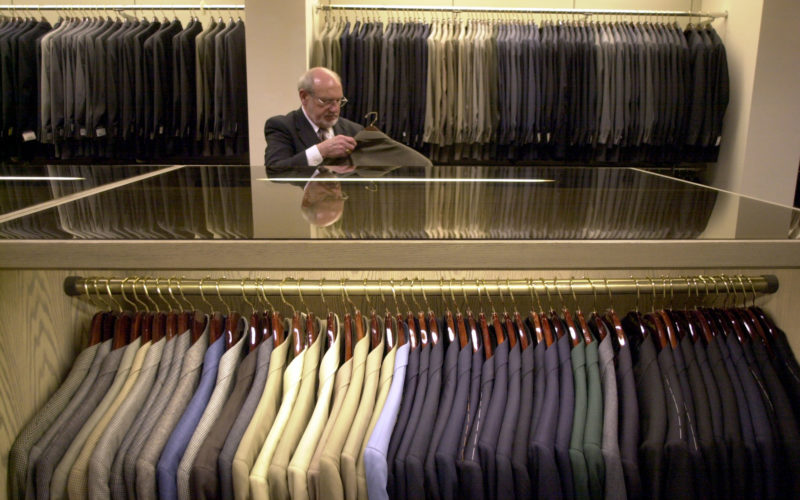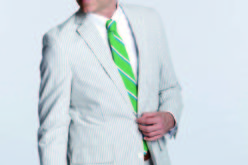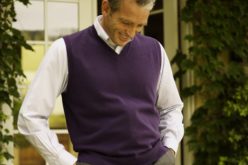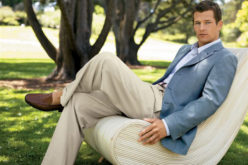Q. I have a new boss who appears often at public events. He dresses “professionally” but not in what I think is good style. He has worn suits with dark shirts and oddly matched pocket squares, dark blue suits with brown strapped shoes, light bright blue checked jackets, and contrast-collared shirts with broad shouldered jackets. He often works with schools and I feel our high school students should not think these are combinations to wear for interviews. What do you think?
A. Personal style is an important aspect of dressing, but this can sometimes be pushed too far. The looks you describe are not outlandish, but they do seem to be lacking in style and sophistication. We usually expect public figures to be smartly dressed and to show what I refer to as a certain degree of “executive presence.”
Knowing the “rules” and then occasionally breaking or changing some of them is another tenet I support, and much of what you describe fits that category.
Dark shirts with suits were much more popular back when Regis Philbin hosted “Who Wants to Be a Millionaire?” in 1999-2003; these days, the look seems to be lacking in polish. White contrast collars on colored dress shirts were seen more often in the 80s and 90s; today they tend to look a bit dated. And dressy dark blue suits are traditionally paired with black shoes, not brown. But none of these is entirely out of style, let alone specifically wrong. Even so, I would suggest a few changes. Instead of dark shirts, I would switch to solid crisp white or powder blue shirts or perhaps a dressy shirt with white-and-blue narrow stripes. Not only are these an upscale look, but they are far easier to match up with other accessories.
I certainly am not a proponent of exactly matching ties with pocket squares. I believe this sort of precise matching looks as if you were dressed out of a kit. It reminds me of high school prom attire. On the other hand, repeating the colors and coordinating them subtly, rather than totally matching them, is often the sign of a smart dresser.
Likewise, I dislike straps on shoes that are worn with suits (as opposed to laces) and find them really unattractive. Despite my fondness for a bit of flair in a man’s choice of clothes, I have always been a strong advocate for men’s dress shoes that are quietly and tastefully conservative; the more traditional the shoe, the better. Dress shoes with straps and/or buckles are not my idea of the right choice for a well-dressed man.
Politicians, TV news anchors, CEO’s, professors, and others in positions that can influence the younger generation should consider it part of their responsibility to present a class-act image for young men to follow/copy/learn from. There are business departments in some colleges where the students are required to dress “appropriate for business” on one specific day each week.
Regarding thoughts on whether the choices made by the person you are describing influence young men to dress similarly or inappropriately in interviews, I am not sure. Obviously athletes, musicians, actors, and other celebrities that young men may look up to often dress in styles that no one should wear to an interview. They often dress in styles that I think no one should wear out of the house!
I am hoping that the young men themselves, their families, and/or their schools’ guidance departments are influencing them to dress appropriately.
Please send your men’s dress and grooming questions and comments to MALE CALL: lois.fenton@prodigy.net









